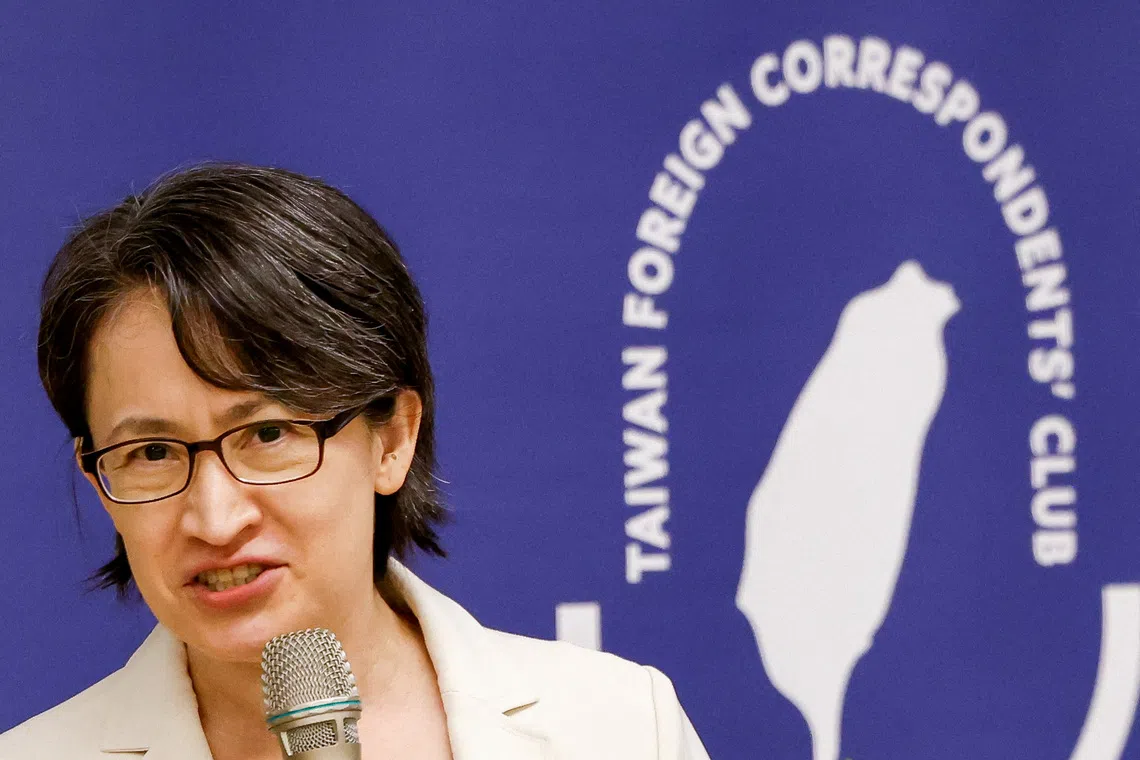China complains to European Parliament over Taiwan V-P’s speech
Sign up now: Get insights on Asia's fast-moving developments

Taiwanese Vice-President Hsiao Bi-khim's remarks come amid EU concern about China’s restrictive trade measures.
PHOTO: REUTERS
Follow topic:
BEIJING – China said it complained to Europe’s legislature over a speech Taiwanese Vice-President Hsiao Bi-khim gave to a group of its members, a spat that comes with tensions already heightened over trade and other issues.
“China has lodged serious protests with the European Parliament on the Taiwan independence politician’s activities in the building of the European Parliament,” Foreign Ministry spokesman Lin Jian said at a regular press briefing in Beijing on Nov 10.
Mr Lin said Ms Hsiao’s call for greater support and international recognition for the self-ruled archipelago would “only reveal the despicable attempt to advance separatist activities”, which would “never change the inevitability of China’s reunification”.
Ms Hsiao made the rare speech on Nov 7 in the European Parliament in Brussels as part of the Inter-Parliamentary Alliance on China’s annual summit, where she called Taiwan and its 23 million people “a victim of coercion” by China. Beijing views Taiwan as part of its territory and has repeatedly vowed to bring the archipelago under its control someday, by force if necessary – a stance the government in Taipei rejects.
Ms Hsiao’s remarks come amid European Union concern about China’s restrictive trade measures and as it tries to defend its industries from a wave of competition from the Asian nation. Beijing has also been restricting shipments of rare earth magnets used in everything from electric vehicle batteries to defence manufacturing – requiring companies to obtain import permits.
The EU is also frustrated with China’s economic and diplomatic backing of Russia since the full invasion of Ukraine in 2022, though Beijing counters that it is not a party to the fighting and has tried to bring about peace.
Beijing campaigns to isolate Taiwan on the global stage, pressuring other nations to sever formal relations with it. The administration of Taiwanese President Lai Ching-te has tried to counter that by developing ties with other democracies, a push also pursued by his predecessor, Dr Tsai Ing-wen.
On Nov 9, Dr Tsai arrived in Berlin, where she will make a speech at the Berlin Freedom Conference. The event’s website says it gathers figures from a range of sectors to “push democracies to act with greater clarity, purpose and confidence” in an increasingly multipolar world.
In the press briefing on Nov 10, Mr Lin called on Germany to “oppose Taiwan independence moves, avoid sending any wrong message to Taiwan independence separatist forces and take concrete actions to uphold overall bilateral relations”. BLOOMBERG

